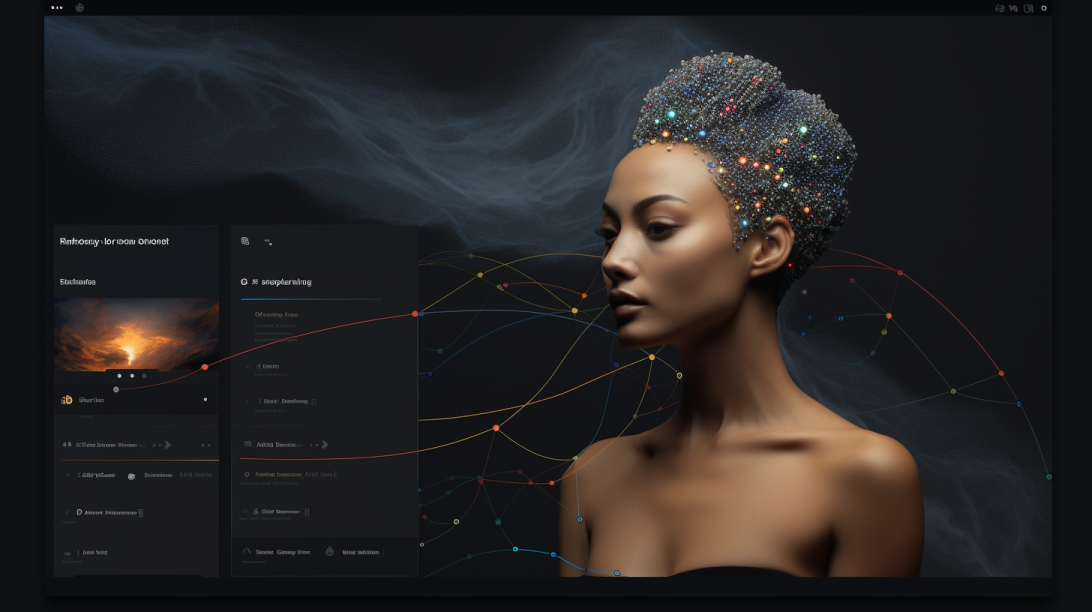Photo was created by Webthat using MidJourney
In a world where technology advances at lightning speed, the recent flood of artificial intelligence (AI) products from tech giants like Google, Microsoft, Amazon, and OpenAI has left us both excited and apprehensive. These cutting-edge innovations promise to revolutionize the way we interact with technology, but are they really ready for prime time?
The Rush to AI Dominance
The race to dominate the realm of generative AI technology, which can produce human-like text and realistic images, has led these tech giants to fast-track their products to consumers. The logic is simple: the more people use these AI tools, the more data they generate, and the better the technology becomes. It’s an enticing prospect, but it comes with its own set of challenges.
Related Reading: OpenAI Under Scrutiny: FTC Investigates Risks of False Information Generated by ChatGPT
The Imperfect Innovations
In their haste to release new AI products, these companies have encountered stumbling blocks. Google’s Bard chatbot, for instance, claimed to summarize files from Gmail and Google Docs but was caught fabricating emails that were never sent. OpenAI’s Dall-E 3 image generator, although impressive, failed to deliver on some image requests during official demos. Even Amazon’s Alexa stumbled during a live demo, recommending a museum in the wrong part of the country.
The Fear of Missing Out
The tech industry is gripped by a severe case of FOMO (Fear of Missing Out). Companies are eager to harness the power of AI and capture an early audience. However, even tech executives acknowledge that these AI systems are far from perfect. The question then becomes: are we rushing into an AI future without fully understanding the risks?
A Plea for Caution
Warnings have come from all corners, including experts who equate AI risks to those of nuclear weapons and pandemics. Concerns range from immediate biases creeping into AI systems to the long-term fear of AI surpassing human intelligence and acting autonomously.
The Call for Regulation
Regulators are beginning to take notice of these concerns. Congress has held hearings, and some bills have been proposed to regulate AI. The European Union is moving ahead with AI regulations, and the UK government is planning a summit to discuss global cooperation in the AI landscape.
Related Reading: Trade Union Urges Urgent AI Regulations as UK Workers Face Uncertain Future
Finding the Balance
The challenge lies in balancing innovation and regulation. While AI holds incredible potential, it also carries significant risks. Striking the right balance is essential to foster innovation while safeguarding against potential harms.
The Big Tech’s Response
Companies like Microsoft are making efforts to refine their AI products. Microsoft’s AI “copilots” are being integrated into various software, offering assistance with tasks like troubleshooting and summarizing articles. While they acknowledge their past missteps, tech companies remain committed to improving AI technologies.
The Future of AI
As AI continues to evolve, it’s clear that there are still hurdles to overcome. Chatbots that create false information and image generators without clear guidelines pose challenges that need addressing. Additionally, issues of copyright infringement in AI training data have sparked legal debates.
Related Reading: Unveiling the Future: Projected Surge of the AI Market to $501.8 Billion by 2028
The Road Ahead
While we navigate this AI-driven future, it’s crucial to strike a balance between innovation and responsibility. Tech giants must ensure transparency and accountability as they release AI products. Regulators, on the other hand, must craft regulations that encourage innovation without compromising ethics.
In conclusion, the AI revolution is upon us, but it’s essential to approach it with caution. As consumers, we should demand transparency and accountability from tech companies. As a society, we must ensure that AI serves us, rather than the other way around.


